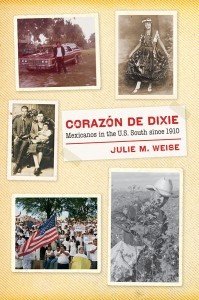Uncategorized
Major in Latin American Studies at the UO
Investigate why Frida Kahlo’s paintings are so enduringly popular. Dive into the world of Latin American soccer. Separate fact from fiction in the biography of Ernesto “Che” Guevara. Sample popular dishes in countries across Latin America. The Latin American Studies Program offers an in-depth look at the richness and diversity of a vast area and its people. Whether pre–Columbian art, the striking wonder of the Amazon rainforest, or the history of colonialism tugs at your heartstrings, you’ll be forever changed by your newfound knowledge.
Take advantage of study abroad programs where you’ll travel to Costa Rica, Ecuador, Mexico, or other exciting places to sharpen your language skills and become familiar with new cultures. In Eugene, you can volunteer for a variety of organizations such as Centro Latino Americano, a local bilingual multicultural agency dedicated to helping the Latino community, or become politically active with the Latin American Solidarity Committee. UO students have also worked with the local school districts to mentor youth. Others have volunteered at Siempre Amigos, which provides health services to survivors of torture and political violence.
You’ll delve into politics, literature, science, ecology, and other engaging topics in courses such as Caribbean Migrants in the Literary Imagination or The Cold War in Latin America. Learn from top-notch scholars who offer encouragement in a supportive atmosphere.
Due to its inherently interdisciplinary training, our undergraduate major in Latin American Studies provides a thorough grounding in the languages, history, geography, and some of the central cultural and socio-economic issues at stake in the region. Career opportunities for students completing a degree in Latin American studies are available through such avenues as research centers, private foundations working in the area, international businesses, international nongovernmental organizations (including human-rights and environmental organizations), the Peace Corps, the United States Foreign Service, international aid programs, the United Nations and other international organizations.
Program LALISA 2017
[embeddoc url=”https://las.uoregon.edu/files/2016/12/PeripheralMappingsPoster-2c3kwej.pdf” download=”all” viewer=”google”]
[embeddoc url=”https://las.uoregon.edu/files/2017/03/013fi-LALISA-program_4-1pfls7k.pdf” download=”all” viewer=”google”]
Transnational Gender Justice in the Trump Era: Central America and the U.S.
[embeddoc url=”https://las.uoregon.edu/files/2017/03/LALISA-ROUNDTABLE-Transnational-Gender-Justice-in-the-Trump-Era-2017-2d5g6h1.docx” download=”all” viewer=”microsoft”]
Julie Weise (History) publishes Corazón de Dixie: Mexicanos in the U.S. South since 1910
Julie Weise’s new book on Mexicanos in the South has just been released by University of North Carolina Press. Julie Weise is an assistant professor in the UO Department of History and a faculty member associated with LAS and CLLAS.
Corazón de Dixie: Mexicanos in the U.S. South since 1910, by Julie M. Weise (November 2015, University of North Carolina Press) 358 pp., published with support provided by the William P. Clements Center for Southwest Studies at Southern Methodist University in Dallas, Texas; David J. Weber Series in the New Borderlands History.
When Latino migration to the U.S. South became increasingly visible in the 1990s, observers and advocates grasped for ways to analyze “new” racial dramas in the absence of historical reference points. However, as this book is the first to comprehensively document, Mexicans and Mexican Americans have a long history of migration to the U.S. South. Corazón de Dixie recounts the untold histories of Mexicanos’ migrations to New Orleans, Mississippi, Arkansas, Georgia, and North Carolina as far back as 1910. It follows Mexicanos into the heart of Dixie, where they navigated the Jim Crow system, cultivated community in the cotton fields, purposefully appealed for help to the Mexican government, shaped the southern conservative imagination in the wake of the civil rights movement, and embraced their own version of suburban living at the turn of the twenty-first century.
Rooted in U.S. and Mexican archival research, oral history interviews, and family photographs, Corazón de Dixie unearths not just the facts of Mexicanos’ long-standing presence in the U.S. South but also their own expectations, strategies, and dreams.
Bartolomé de las Casas Lecture in Latin American Studies
Professor Stefano Varese (Native American Studies, UC Davis) will deliver the 2014 Bartolomé de las Casas Lecture in Latin American Studies. His talk, entitled “THE RIGHT TO RESIST DEVELOPMENT: ETHNOCIDE AND ECOCIDE IN AMAZONIA,” will take place on WEDNESDAY, MAY 28, AT 2 PM, in the Ford Lecture Hall at Jordan Schnitzer Museum of Art.
STEFANO VARESE is Emeritus Professor in the Department of Native American Studies and Director of the Indigenous Research Center of the Americas at the University of California, Davis. He obtained his PhD at the Pontificia Universidad Católica del Perú and taught at the Universidad Nacional Mayor de San Marcos, in Lima. In the 1970s Varese worked for the Division of Native Communities of the Amazonia in Peru. Later, he moved to Oaxaca, Mexico, where he headed “Culturas populares,” a unit of the Secretary of Education devoted to the promotion of Indigenous development. He implemented a number of projects, from bilingual-bicultural education, to artisan production, and to novel forms of political organization. In the early 1990s he moved to Davis and became a member of the Department of Native American Studies while also continuing his involvement with Indigenous organizations, especially the Frente Indígena Oaxaqueño Binacional (FIOB). His scholarly work has focused on Indigenous community development and self-determination, human rights, transnational Indigenous migration and identity, and Indigenous epistemology. He was the recipient of the 2013 LASA/Oxfam America Martin Diskin Award. His publications include Witness to Sovereignty: Essays on the Indian Movement in Latin America (2006) and Salt in the Mountain: Campa Asháninka History and Resistance in the Peruvian Jungle (2004).
For further information please contact Carlos Aguirre at caguirre@uoregon.edu or 541-346-5905.
Truth, Justice, and the Power of Imagination: A Latino Writer’s Transborder Journey
by Héctor Tobar
7:00 p.m. Thursday, February 13
Knight Library Browsing Room
Héctor Tobar is a columnist for the Los Angeles Times, a Pulitzer Prize–winning journalist, and a novelist. He is the author of The Tattooed Soldier (2000) and Translation Nation: Defining a New American Identity in the Spanish-Speaking United States (2006). His most recent novel, The Barbarian Nurseries (2012), won the California Book Award Gold Medal for Fiction for 2012. The son of Guatemalan immigrants, he is a native of the city of Los Angeles.

